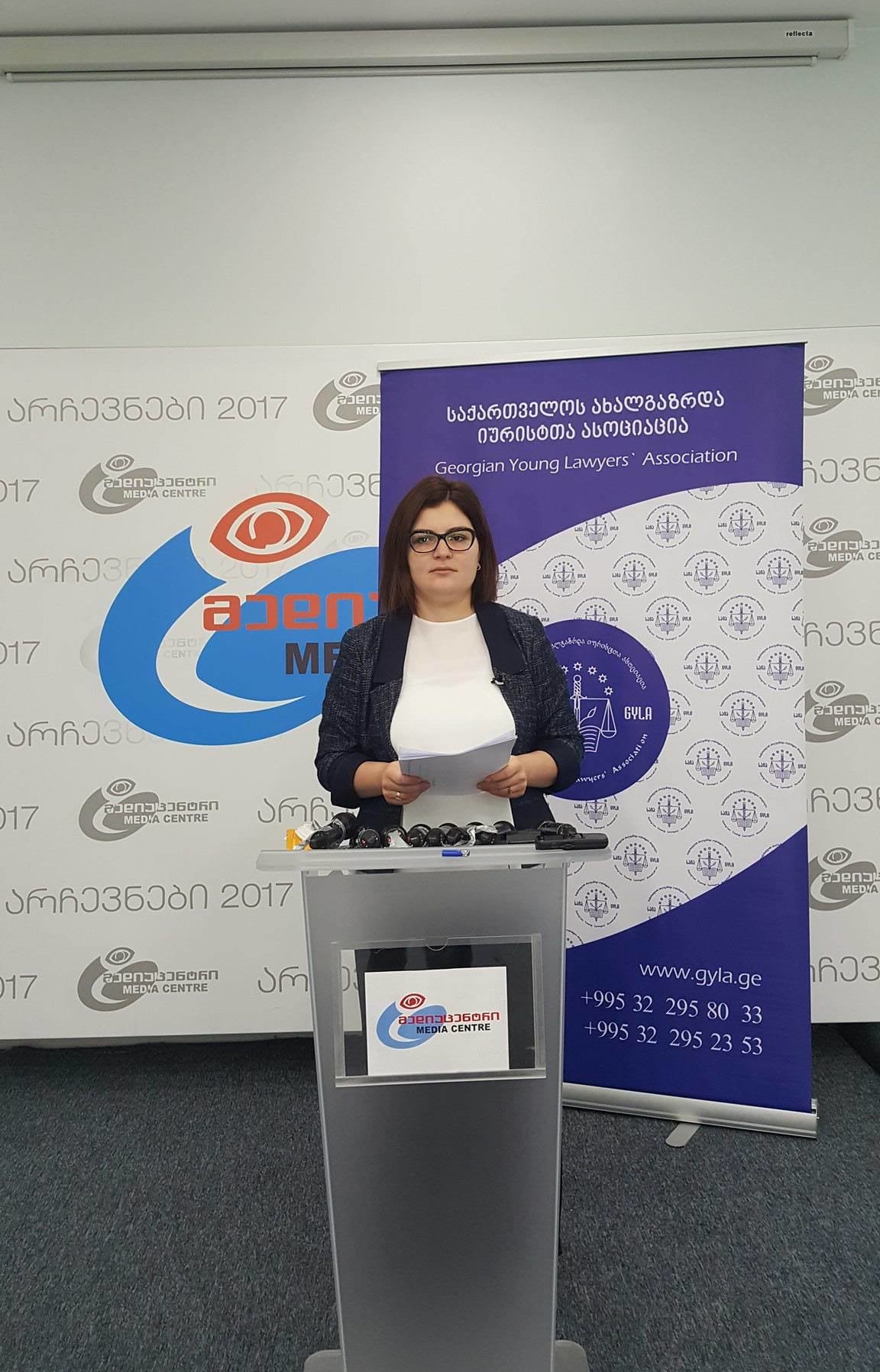NEWS

GYLA addresses the revealed facts of attempts to control voters’ will during the 2017 local elections – in Tbilisi and in the regions of Georgia.
According to our observers, the representatives of political parties “Georgian Dream”, “Leftist Alliance” and observer organization “New Word” are standing near the registration table or queue supervisors and copying the identity data about voters.
According to the Central Election Commission (CEC), the name, surname and registration number in the voters’ list represent public information. According to CEC, therefore, this data does not represent personal information and observers are not limited in accessing such information.[1]
It is concerning that the election administration does not recognize the violation of the electoral legislation in such cases, thereby enabling the incidents of control over voters’ will.
The legislation of Georgia imperatively stipulates that the table version of the voters’ unified list does not represent public information and therefore, must not be disclosed to the third parties. Particularly, according to the Election Code of Georgia (Article 31, provision #11), there is a distinct difference between the two types of voters’ unified list: a. the list for the election commission (so-called ‘table list’) and b. the public version of the voters’ list. Unlike the public version of the list, the table list additionally includes the personal number of voters, which falls under the definition of personal information. The table lists, unlike the public lists, also include the signature of the voters who already voted at the polling station.
According to the CEC decree of 2012 (#42/2012 – On Establishing some of the Electoral Procedures, Article 1.3), “Any form of recording of non-public information or materials (among others, the table version of the voters’ list, which is intended for the election commission) is prohibited at the polling station.”
Therefore, given that the table version of the voters’ list falls under the category of ‘non-public information’, it must not be disclosed to the third parties, regardless of whether the third parties in question intend to record such personal information or not. At the same time, the registration number from the table list is enough to later easily figure out the identity of the voter, through the public list.
Such facts and their scale raise serious doubts on whether the political parties are interested in not merely estimating the number of visiting voters, but also to reveal the identity of those voters, for inflicting control over their will; specifically, through identifying the absent voters (to, allegedly, later mobilize them to vote).
All of the above represents a violation of the legislation of Georgia, specifically:
- Free expression of voters’ will is guaranteed according to the Article 28 of the Constitution of Georgia;
- The ‘secret ballot” and the free expression of voters’ will represent the key principles of the elections, according to the Article 3, clause “d” of the Election Code of Georgia. According to the sub-clause “d.b”, any kind of influence, which limits the free expression of voters’ will and control over voters’ will are prohibited.
At the same time, the Code of Good Practice in Electoral Matters, adopted in 2002 by the Venice Commission (which combines the examples of good practices for the democratic elections), stipulates that: the voters lists must be publicized; however, the list of the voters who turned out to vote – must not be publicized. This provision implies that the information about the identity of those, who turned out to vote – or who did not, must not be disclosed.
We call upon the CEC and all the relevant political actors, to operate in full compliance with the legislation and to terminate the actions, explicitly prohibited in the legislation.
SHARE: